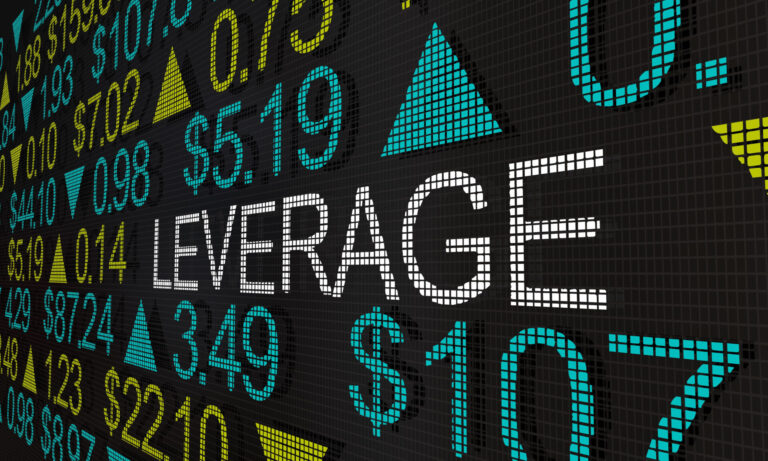
This article will be all about understanding why excessively high leverage can be dangerous for traders and Forex brokers.
We will look at the effects of high leverage on both parties.
Particularly, we’ll simplify these important factors when trading in Foreign Exchange Markets:
- What do we consider “Excessively High Leverage.”
- How leverage affects traders
- How traders can use high leverage to abuse brokers
Definition of High Leverage
Let us first define what we consider excessively high leverage. The maximum leverage you can use in the US on majors is 1:50. This limit is slightly lower in Europe. This gives us an idea of what leverage you can count on as a forex trader in reputable jurisdictions. Anything above that can be considered excessively high leverage, with different shades of gray…
At some point, we all have heard the expression, “Leverage is a double-edged sword.” The reason is that it magnifies both profits and losses for both parties in a trade (a broker and a trader). More so for a trader because the house always wins. The higher the leverage is, the quicker the potential losses or profits (less often) accumulate.
For instance, if you search online for a percentage of losing traders, you will find different figures. But most often, you will encounter a range of 60-80%. And it seems about right if you look at the numbers published by the EU forex brokers. Yes, the MiFID II requires them to make this information publicly available.
So far, we have established that:
- A higher leverage speeds up the generation of losses (more often) and profits (less often), and,
- The absolute majority of retail traders lose their money.
Knowing this, higher leverage is good for brokers and bad for traders. It “helps” traders to lose their money more quickly. But the reality is that things are a little more complicated. That’s why it wouldn’t be correct to subject this matter to binary classification.
High leverage and retail traders
Years of unscrupulous marketing have distorted the general public’s opinion about the forex market. Many people think of forex trading as if it was a cash printing machine. Anyone could start trading and making huge profits with just a couple of dollars in their pocket. Well, some parts of these statements are true.
The technology enabled many people from different social backgrounds to access all financial markets, not only forex. The leverage makes it possible to start trading with a relatively small initial capital. However, the ugly truth is that the higher the leverage you use, the higher your chances are to lose your account quicker than Thanos can snap his fingers.
When you see a broker offering a leverage of up to 1:1000 or even 1:1300 with no minimum or a very small minimum deposit requirement, it can tell you a lot about the broker itself and the type of clients they are after. They target traders in the bottom decile of the total income distribution. Brokers of this type tend to engage in very aggressive marketing tactics. They often offer huge bonuses, rebates, reimbursement of deposit fees, and so on.
Just think about it. If you don’t have a lot of money, you can only trade Forex when you have access to enormous leverage. And that’s what they give you.
However, from the broker’s perspective, small accounts are a headache in general. They require almost precisely or even more resources from the broker than bigger account clients. But the revenue they generate for a broker is abysmal. So, the fact that a broker targets smaller account sizes can only point to one thing. Something is rotten in the state of Denmark, or they are not doing that great in plain English.
Implications for Forex brokers
In one of our previous articles, we wrote that most of them are either B-book or hybrids. Theoretically, if you combine high leverage with a B-book or hybrid model, the results should be “interesting,” to say the least. But real life puts everything to the test.
The rationale behind offering higher leverage from the broker’s perspective is quite simple. Higher leverage gives clients the power to start trading with only a fraction of the funds that would usually be required to get into trading in cases where lower leverage is used.
Possible abusive practices by clients
While it is true that high leverage empowers smaller accounts to trade, it may lead to several undesired side effects for a broker. Let us name a few:
For instance, a client or a group of clients can open several “paired” accounts. They would then fund these accounts and start trading. One of these accounts places a Buy Stop for ten standard lots (e.g., 100 000 each) and the other a Sell Stop for ten lots. Should the price move by as little as 11 pips, one of the accounts will be blown. The system will compulsory close all of the client’s positions. However, the other account will make more than USD 1000 riskless profit.
- When applied to larger account sizes, higher leverage will diminish the broker’s ability to hedge their risk effectively. As a result, it may lead to significant losses. If a client or clients get lucky with the market’s direction, the losses will grow like a snowball. The broker won’t be able to hedge this risk appropriately. Their ability to hedge the risk is limited by the amount of money kept with an LP or LPs for hedging purposes. In other words, the key stakeholders in the broker should get married with the idea that these funds may evaporate in a blink of an eye.
- Higher leverage will, with a high degree of probability, attract more clients using martingale-based trading strategies and expert advisors. These strategies keep on adding to the volume of open positions progressively. And again, if they are lucky with the market direction, their gains = the broker’s losses. To reiterate, higher volume trades diminish the broker’s ability to hedge the risk in the same way as above. And higher leverage acts as a catalyst here.
- If you are a newly established broker, you have more freedom in choosing what trading conditions you will go live with. But the ramifications will be hard to predict if you have been in business for a while and suddenly decided to offer higher leverage to your customers. By announcing the introduction of higher leverage, you risk being placed in the category of scammers. This will damage your reputation beyond repair. That is if you valued your reputation, to begin with.
- Let us assume a trader’s account has 1:1000 leverage. They fund this account with $100. With $100, they can trade up to 1 lot on EUR/USD. Let’s imagine for a second that they bought/sold exactly one lot. The market is flat, and there are no losses/profits from the market movement. However, the current swaps on EUR/USD ($9) will eat away their entire account balance in ten days.
- Let us expand on the previous example. What if they select a currency pair with a lower swap rate and again trade one lot? Even though EUR/USD (Euro € and $ United States Dollars) has one of the tightest spreads, they will likely be stopped out of their position at the end of the trading day when spreads get wider. When that happens, they will flood customer service with complaints. You can also bet that they will take to social media to share their frustration.
Conclusions
As a trader, you must constantly remind yourself that the odds of you being profitable are not in your favor. When you have only a couple of hundred bucks and are shopping around for a broker, you don’t necessarily have to chase after those offering high leverage. Even if they are a good, honest broker with extremely knowledgeable customer support and their reputation online is immaculate (highly unlikely), chances are you will use the maximum leverage they allow you to use, and you will lose your money quicker with them than with any other broker that offers lower leverage.
When running a forex broker, before introducing higher leverage, the company needs to analyze the above-listed challenges with more scrutiny and consider ways to address them beforehand. Some of the processes (e.g., internal risk control and management) may need to be taken back to the drawing board if they haven’t been designed initially to work with the higher leverage. On top of that, the company may want to weigh potential reputational damages and lost revenue due to the constant flow of negativity from their disgruntled clientele.



